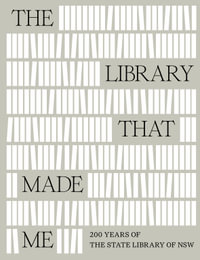In recent years, three ancient manuscripts relating to the Yi jing (I Ching), or Classic of Changes, have been discovered. The earliest--the Shanghai Museum Zhou Yi--dates to about 300 B.C.E. and shows evidence of the text's original circulation. The Guicang, or Returning to Be Stored, reflects another ancient Chinese divination tradition based on hexagrams similar to those of the Yi jing. In 1993, two manuscripts were found in a third-century B.C.E. tomb at Wangjiatai that contain almost exact parallels to the Guicang's early quotations, supplying new information on the performance of early Chinese divination. Finally, the Fuyang Zhou Yi was excavated from the tomb of Xia Hou Zao, lord of Ruyin, who died in 165 B.C.E. Each line of this classic is followed by one or more generic prognostications similar to phrases found in the Yi jing, indicating exciting new ways the text was produced and used in the interpretation of divinations.
Unearthing the Changes details the discovery and significance of the Shanghai Museum Zhou Yi, the Wangjiatai Guicang, and the Fuyang Zhou Yi, including full translations of the texts and additional evidence constructing a new narrative of the Yi jing's writing and transmission in the first millennium B.C.E. An introduction situates the role of archaeology in the modern attempt to understand the Classic of Changes. By showing how the text emerged out of a popular tradition of divination, these newly unearthed manuscripts reveal an important religious dimension to its evolution.
Industry Reviews
A truly wonderful book, masterfully conceived and extremely well crafted. Edward L. Shaughnessy demonstrates once again why he is, among all Western scholars, the premier translator and interpreter of the early history of what became the Classic of Changes-arguably the most important single work in all of premodern Chinese history. -- Richard J. Smith, author of The I Ching: A Biography Shaughnessy has written the definitive account of these materials. Nothing like it exists, in any language. Closely argued, and drawing on an impeccable control of the literature, this study re-forms our understanding of how and what the Yijing might have been. -- Kidder Smith, Bowdoin College In his skillful presentation of three groups of bamboo-strip manuscripts discovered in China since the 1970s, Shaughnessy gives new meaning and pleasure to reading one of the two oldest works of Chinese literature, the Classic of Changes. These manuscripts bring to life the significance of divination in early Chinese culture, while remaking our understanding of the 'Changes.' -- Donald Harper, University of Chicago As a master of the 'Changes,' one of China's most influential and yet most perplexing texts, Shaughnessy presents specialist scholars and students with an admirably clear account of the difficulties of interpretation and a comprehensive review of recently found manuscript copies of the book. His deeply researched text breaks new ground for the study of Chinese manuscripts and China's methods of divination, with penetrating contributions to the scholarly handling of fragments, the recovery of lost literature, and the problems of textual criticism. -- Michael Loewe, University of Cambridge Highly recommended. CHOICE Unearthing the Chances will appeal to the archeologist in everybody... Beautifully designed... Shaughnessy's attention to detail is admirable, and makes this an essential book for those interested in the history of the I Ching. Contemplating IChing A groundbreaking work. Journal of Asian Studies A perfect reference work for students and specialists of both the Zhouyi and Chinese palaeography. -- Dimitri Drettas The Bulletin of the School of Oriental and African Studies

























